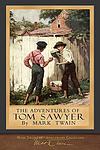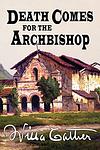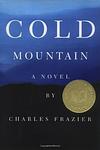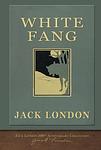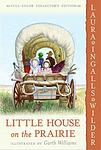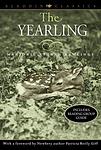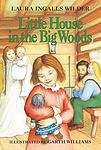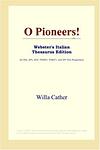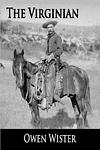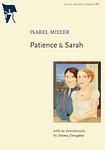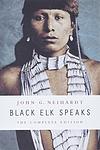The Greatest "Frontier and pioneer life" Books of All Time
Click to learn how this list is calculated.
This list represents a comprehensive and trusted collection of the greatest books. Developed through a specialized algorithm, it brings together 284 'best of' book lists to form a definitive guide to the world's most acclaimed books. For those interested in how these books are chosen, additional details can be found on the rankings page.
Genres
Frontier and pioneer life is a category of books that focuses on the experiences of individuals and communities who lived on the edge of civilization during the expansion of the United States in the 19th century. These books typically explore the challenges and triumphs of settlers as they established new homes, farms, and towns in the wilderness, often facing harsh weather, dangerous wildlife, and conflicts with Native American tribes. The genre also includes stories of explorers, fur traders, and other adventurers who ventured into uncharted territories, as well as memoirs and biographies of notable figures who played a role in shaping the American West.
Countries
Date Range
Reading Statistics
Click the button below to see how many of these books you've read!
Download
If you're interested in downloading this list as a CSV file for use in a spreadsheet application, you can easily do so by clicking the button below. Please note that to ensure a manageable file size and faster download, the CSV will include details for only the first 500 books.
Download-
1. The Adventures of Huckleberry Finn by Mark Twain
The novel follows the journey of a young boy named Huckleberry Finn and a runaway slave named Jim as they travel down the Mississippi River on a raft. Set in the American South before the Civil War, the story explores themes of friendship, freedom, and the hypocrisy of society. Through various adventures and encounters with a host of colorful characters, Huck grapples with his personal values, often clashing with the societal norms of the time.
-
2. My Antonia by Willa Cather
This novel follows the life of Antonia Shimerda, a Bohemian immigrant to the United States, through the eyes of her childhood friend, Jim Burden. The narrative explores their lives in the harsh environment of the American Midwest, their struggles with poverty, cultural adaptation, and personal growth. Antonia's resilience, strength, and love for life inspire Jim, who moves away for education and career but remains emotionally tied to the woman and the prairie life he left behind. The book is a compelling portrayal of pioneer life, human resilience, and the enduring power of friendship.
-
3. The Call of the Wild by Jack London
This book tells the story of a domesticated dog named Buck who is stolen from his home in California and sold into service as a sled dog in Alaska. As he faces harsh conditions and brutal treatment, Buck must learn to adapt to the wild and harsh environment, ultimately reverting to his ancestral instincts in order to survive. The book explores themes of nature versus nurture, civilization versus wilderness, and the struggle for dominance.
-
4. The Adventures of Tom Sawyer by Mark Twain
The book chronicles the mischievous adventures of a young boy living on the Mississippi River in the mid-19th century. The protagonist, a clever and imaginative boy, often finds himself in trouble for his pranks and daydreams. His escapades range from his romance with a young girl, his search for buried treasure, his attendance at his own funeral, and his witnessing of a murder. The narrative captures the essence of childhood and the societal rules of the time.
-
5. The Last of the Mohicans by James Fenimore Cooper
Set during the French and Indian War, this historical novel follows the journey of Hawkeye, a skilled frontiersman, and his two Mohican companions as they guide two daughters of a British colonel through the dangerous wilderness of the American frontier. The group faces numerous perils and conflicts, not only from the war-torn landscape and hostile tribes, but also from a treacherous Huron scout. The novel explores themes of racial conflict, survival, and the fading of indigenous cultures.
-
6. Lonesome Dove by Larry McMurtry
The book tells the story of two retired Texas Rangers who embark on a perilous cattle drive from Texas to Montana in the 1870s. The narrative focuses on the duo's adventures and the characters they meet along the way, including a variety of outlaws, Indians, and settlers. This epic tale of the Old West explores themes of friendship, unrequited love, and the harsh realities of frontier life.
-
7. Death Comes for the Archbishop by Willa Cather
This novel follows the life of a Catholic bishop and a vicar as they attempt to establish a diocese in New Mexico Territory. The story highlights their struggles and triumphs over the course of 40 years, dealing with the harsh landscape, cultural differences, and the challenges of faith. It also explores the history and culture of the Southwest, including the influence of Mexican and Native American traditions.
-
8. Cold Mountain by Charles Frazier
"Cold Mountain" is a novel set during the American Civil War, following a wounded Confederate soldier who deserts the army to make a perilous journey back home to his beloved. The narrative alternates between his arduous trek and the struggles of the woman he left behind as she tries to maintain their North Carolina homestead. The novel explores themes of love, survival, and the destructive impact of war on the human spirit.
-
9. White Fang by Jack London
The novel tells the story of a wolf-dog hybrid named White Fang, who endures harsh conditions in the Yukon during the 19th-century Klondike Gold Rush. The narrative follows White Fang's journey from a life in the wild to domestication. He experiences cruelty and brutality from both nature and humans, but eventually finds kindness and compassion with a man who rescues him from a dog-fighting ring. The book explores themes of survival, nature versus nurture, and redemption.
-
10. Little House on the Prairie by Laura Ingalls Wilder
The book chronicles the adventures of a young pioneer family as they travel westward from Wisconsin to Kansas in the late 19th century. The family, consisting of a mother, father, and their three daughters, face numerous hardships and challenges along the way, including scarce resources, harsh weather conditions, and encounters with Native Americans. Despite these challenges, they manage to build a new life for themselves on the prairie, showcasing the resilience and determination of early American settlers.
-
11. Riders of the Purple Sage by Zane Grey
"Riders of the Purple Sage" is a classic Western novel that tells the story of a woman named Jane Withersteen, who is persecuted by her Mormon fundamentalist church community in Utah for her friendship with a non-Mormon man. She is protected by a mysterious rider known as Lassiter, a gunslinger who is seeking revenge for the death of his sister. The novel explores themes of religious intolerance, the struggle for personal freedom, and the violent frontier life in the American West.
-
12. The Yearling by Marjorie Kinnan Rawlings
"The Yearling" is a coming-of-age story set in the late 19th century, in the scrubland of Florida. It follows a young boy who adopts an orphaned baby deer and nurtures it into adulthood. As the deer grows, it begins to cause problems for the boy's family, who are struggling to survive as subsistence farmers. The boy is eventually forced to choose between his love for the deer and his responsibility to his family, leading to a heartbreaking decision that marks his transition into adulthood.
-
13. Angle of Repose by Wallace Stegner
This novel follows the story of a retired historian, wheelchair-bound due to a degenerative disease, as he explores the lives of his pioneering grandparents in the late 19th and early 20th century American West. Through letters, he pieces together their struggles, triumphs, and the impact of their relationship on their surroundings. The historian parallels his own life and failed marriage with that of his grandparents, leading to a deep exploration of the concepts of stability, perseverance, and the "angle of repose."
-
14. Little House In The Big Woods by Laura Ingalls Wilder
"Little House In The Big Woods" is a heartwarming story set in the late 1800s, following the life of a young girl named Laura and her family as they navigate the challenges and joys of living in the Wisconsin wilderness. Through vivid descriptions and engaging anecdotes, the book offers a glimpse into the daily routines, traditions, and adventures of pioneer life, highlighting the importance of family, resilience, and the simple pleasures found in nature.
-
15. A Lost Lady by Willa Cather
"A Lost Lady" is a story set in the American West, focusing on a beautiful and captivating woman who is married to a much older, wealthy railroad magnate. As her husband's health and fortune decline, she becomes involved with a younger man, which leads to scandal. The narrative explores themes of changing societal norms, the decline of the pioneer era, and the transformation of the American West.
-
16. O Pioneers! by Willa Cather
"O Pioneers!" is a novel about a Swedish-American immigrant family's struggles and successes in the great plains during the late 19th century. The story centers on the family's eldest daughter, who inherits the family farm and devotes her life to making it thrive despite the hardships of weather, personal loss, and societal expectations. The novel explores themes of love, gender, land ownership, and the harsh realities of frontier life.
-
17. The Emigrants by Vilhelm Moberg
"The Emigrants" is a historical novel that follows the journey of a Swedish farming family who, driven by poverty and religious persecution, decide to emigrate to America in the mid-19th century. The narrative explores their struggles and hardships, from the decision to leave their homeland, the arduous journey across the Atlantic, to their eventual settlement in Minnesota. The book provides a profound and realistic depiction of the immigrant experience, highlighting the courage, determination, and resilience of the emigrants.
-
18. Remembering Babylon by David Malouf
The novel explores the life of a young man who, after being shipwrecked, is raised by Aboriginals in 19th century Australia. After sixteen years, he attempts to reintegrate into European society, but is met with suspicion and hostility due to his adopted culture and lifestyle. The book delves into themes of identity, belonging, and the clash between Aboriginal and European cultures.
-
19. Giants in the Earth by Ole Edvart Rolvaag
"Giants in the Earth" is a historical novel that chronicles the story of a Norwegian pioneer family's struggles with the land and the elements of the Dakota Territory as they try to make a new life in America. It is a profound and accurate depiction of the trials, tribulations, successes, and failures of pioneer life, emphasizing the harsh realities of adapting to a new environment. The novel explores themes of man versus nature, cultural displacement, and the pursuit of the American Dream.
-
20. The Prairie by James Fenimore Cooper
"The Prairie" is a tale set in the early 19th-century American frontier, where Natty Bumppo, an aging frontiersman better known as "the trapper" or "Leatherstocking," navigates the challenges of the untamed West. He encounters various settlers and Native Americans, as well as a family in distress, and becomes embroiled in conflicts that arise from the encroachment of civilization on the wilderness. As the European-American settlers clash with the indigenous tribes and amongst themselves over land and resources, the trapper's experience and wisdom become crucial in navigating the moral complexities and the physical dangers of the expansive prairie. The novel explores themes of manifest destiny, the impact of westward expansion, and the inevitable transformation of the natural landscape and Native American cultures.
-
21. Journals by Meriwether Lewis, William Clark
This book is a compilation of the detailed journals kept by two explorers during their expedition across the American West, from 1804 to 1806. The journals provide a first-hand account of their encounters with Native American tribes, their observations of new plant and animal species, and the challenges they faced while traversing uncharted territories. The explorers' writings not only offer insights into their historic journey but also serve as a valuable resource for understanding early 19th-century American history and the country's westward expansion.
-
22. The Virginian by Owen Wister
This classic novel, set in the late 19th century American West, tells the story of a nameless cowboy known only as the Virginian. Working on a Wyoming ranch, he embodies the ideals of the western hero—brave, honorable, and skilled in the ways of the frontier. The narrative follows his adventures, his romance with the spirited schoolteacher Molly Wood, and his encounters with cattle rustlers and other outlaws. Through his journey, the book explores themes of justice, love, and the clash between the untamed wilderness and the encroaching rules of civilization, offering a nuanced portrayal of the American West during a time of transformation.
-
23. Patience And Sarah by Isabel Miller
This novel is a historical romance set in the nineteenth-century United States, telling the story of two women who defy the conventions of their time. The narrative follows a farmer's daughter and a painter who fall in love and dream of a life together. Despite societal pressures and the challenges posed by their families and community, the couple embarks on a journey to find a place where they can live openly and build a future. The book explores themes of love, gender roles, and the pursuit of personal freedom, as the protagonists navigate the obstacles of their era to carve out a space for themselves.
-
24. Black Elk Speaks by John G. Neihardt
"Black Elk Speaks" is a profound narrative that recounts the life of a Native American medicine man from the Oglala Lakota tribe. It provides a unique perspective on the Lakota people's history and culture, their spiritual beliefs, and the impact of westward expansion on their way of life. The book also delves into the protagonist's personal spiritual visions, which he believes have significant prophetic and healing powers. The narrative is a poignant exploration of the clash between cultures and the devastating effects of colonization on indigenous peoples.
-
25. The Solace of Open Spaces by Gretel Ehrlich
This book is a collection of essays that explore the author's experiences and observations after moving from the city to the rural landscapes of Wyoming. The narrative delves into the harsh and beautiful realities of living in the American West, the author's personal healing after a tragic loss, and the solace found in the vast open spaces. The book is a profound meditation on nature, solitude, grief, resilience, and the transformative power of landscape.
Reading Statistics
Click the button below to see how many of these books you've read!
Download
If you're interested in downloading this list as a CSV file for use in a spreadsheet application, you can easily do so by clicking the button below. Please note that to ensure a manageable file size and faster download, the CSV will include details for only the first 500 books.
Download


